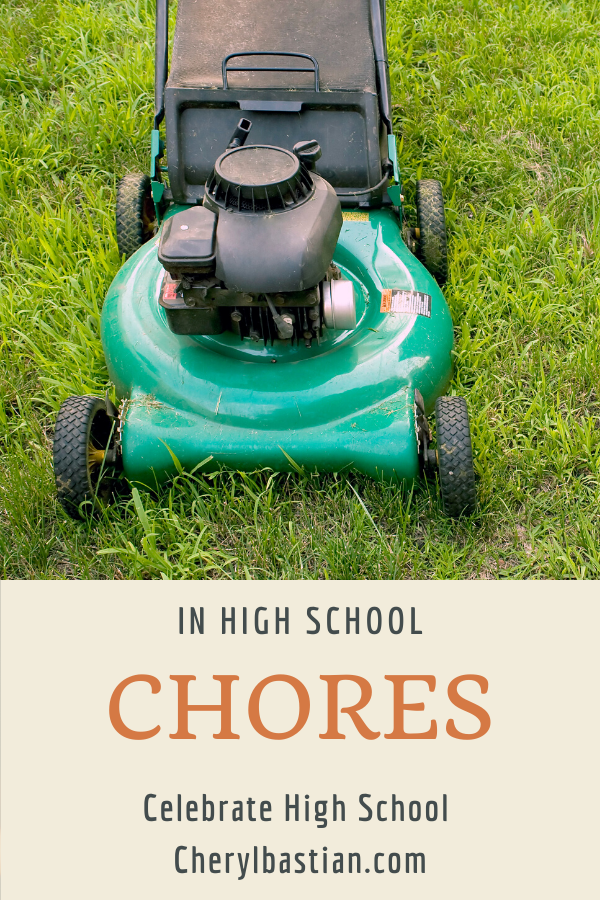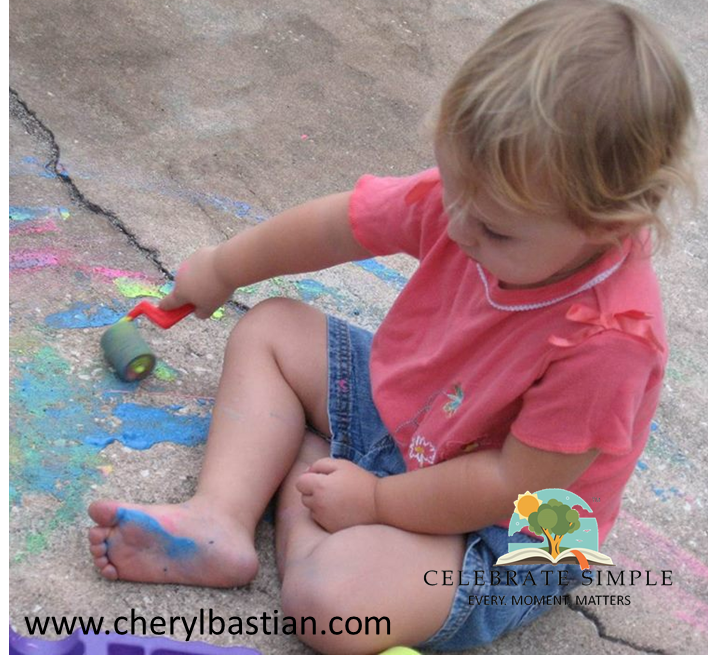A wise, older mom once encouraged me to foster a relationship with my children when they were young. I have to admit, it wasn't always easy to be excited to watch ants make a hill, walk around the lake hunting for tadpoles, or play Candyland for a second or third time as laundry hollered to be loaded and dinner shouted to be started. There were seasons of new babies and illnesses.
But, I listened to my friend's her sage wisdom, what she had learned from her experiences.
The purpose, she said,
"If you want a relationship with your young adults, start when they are little and never stop!"
Twenty-seven years into this parenting thing, I can say I was intentional about putting my best foot forward to engage in my children's lives.
But, I will be honest. I wasn't always happy about setting aside my ideas or my activities.
There were moments I complained. There were days I was tired, but persevered anyway. My children saw my intentions.
What I learned from that older mom?
My efforts mattered--all of them, even the ones that were not picture perfect.
Fast forward.
What do we do when children get older, when dates are more than playing a game (though some older children still enjoy games), stopping by the playground, or catching butterflies?
Or, what if life circumstances kept us from spending as much time with our children as we would have liked? Do we throw in the towel and assume a relationship with our teens can't be fostered?
We start with where we are now--parent and child, parent and young adult.
No one outgrows the need for relationship and time spent on relationships is never wasted.
So, where do we start (or continue) with our older children?
Start with what they enjoy, what they like.
With five very different teens, young adults, and adult children, the times we spend together varies.
Sometimes I initiate time together. Other times a child asks will ask to spend time together. Some of my ideas are really creative, others met a daily need, or accomplished a task. Our favorite times include:
1. Sipping hot chocolate. Outside on the patio or sitting cross-legged on the couch, just the two (or three) of us.
2. Taking a walk. This is a favorite for one of my health and fitness-minded young adults.
3. Going to the thrift store. Often there's a goal for our adventures at our local thrift store's half-price Wednesday. We most always arrive home feeling great about the time we spent together and the bargains we find.
4. Working out together. This is a HUGE stretch for me (no pun intended!) but makes my young adults chuckle. Yes, we've had some laughs at my expense! Laughter is part of relationship building.
5. Painting the bedroom. At some point in the teen years, most young adults desire to freshen up their room. Spending a weekend choosing a color and applying the new coat of freshness can make memories, for sure.
6. Designing a website. My entrepreneur asked if I'd help her figure out how to build a free site. A few days later, we were able to say, "I couldn't have done that without you!"
7. Going shopping. My children know shopping is not something I really enjoy. I like bargains, but I have other things I would rather do. And, with eight children, it seems someone always needs a new shirt, underwear, or a larger size sneakers! And, often the request doesn't come at an ideal time. However, if one of my children needs something and asks me to go along, I'm there. In fact, one of my favorite mommy heart moments was when my adult child set up his first apartment and asked me to go with him to give my opinion on a couch. I was honored and accepted the invitation with a warm heart. I will never forget that day!
8. Eating a plateful of nachos. While my boys were playing high school baseball, they would often arrive home starving and needing to process the action of the game. It was often hard to keep my tired eyes open--and I rarely remembered the fine details of every inning--but those late evenings were more than worth the sleep I lost. I will admit these late night dates made maintaining weight a challenge.
9. Reading a book. One of our young adults loved to read and then engage in conversation, pondering thoughts with someone else. Often Mike or I was that someone else. What an honor and a privilege! Perhaps your young adult might enjoy this type of time together.
10. Sharing an appetizer. Sharing an afternoon appetizer at a local restaurant may be just the change of scenery your young adult needs. Often restaurants offer afternoon specials to encourage patrons. Research the deals in your area. It may be just the renewal a relationship needs.
11. Solving a jigsaw puzzle. Though this hasn't been a terribly frequent choice, when we did engage in this challenge we were able to say, "We accomplished a task together."
12. Making greeting cards. From the very early years of our marriage there hasn't been a lot of extra cash in the budget for cards. Creating cards to make someone smile, has definitely been heart-warming. Making several to keep some on hand for needs that arise may be a great way to spend time with your creative.
13. Visiting a museum. One of our young adults enjoyed visiting museums, especially art and history. Interestingly, I became quite interested in both art and history, neither of which were natural interests of mine. I love when the interests of one family member rub off on another.
14. Volunteering together. When my high schoolers began to need community service hours, we were always looking for venues to serve. Though it would have been easier to drop off and go, when invited to stay, we accepted. As it turned out the experienced blessed several family members for several years.
15. Enjoying free coffee. I have a young adult who is very frugal...and loves coffee. This has definitely been a favorite date, especially National Coffee Day rolls on September 29.
16. Using a coupon. In a large family where money can be tight, we have gotten creative and in the process have enjoyed great times together, frugally. Honestly, once they got the hang of it, my teens and young adults came up with amazingly great deals and ideas to send time together.
17. Riding bikes. Whether biking for the sake of staying fit or enjoying time outside, this has been a favorite in all stages of life.
18. Doing a DYI project. If you have an innovator or a creative, this can be a fun way to spend the afternoon. I have learned fun DIY ideas from my young adults.
19. Enjoying nachos, AGAIN! WHEW! The high school ball nights turned into freshman year of college--seemingly overnight! My oldest--then a college freshman--invited me to share his nachos, a little later in that season of life...at 1 AM. I said YES! And, I never regretted it. He continued to ask and I gained what I call the Mom Freshmen Fifteen!
20. Going BOGO. One of the favorite date requests for our youngers and olders is BOGO shakes at the local Steak N' Shake. The waitresses know us well!
21. Sharing a tradition. Some of our dates were a vehicle for generational sharing. Consider the traditions of your family and how you might share those with yet another generation--shopping for sibling Christmas presents, coffee with Grandma, attending Memorial Day veteran celebrations have been among our favs.
22. Learning a new skill. Learning is life-long. We parents can model this by inviting a young adult to learn a new skill alongside us or we can offer to help a young adult learn a new skill, perhaps one he or she has desired to learn for awhile. Together, my young adults and I have learned how to make lollipops, plant a garden, paint window shutters, and sew aprons. What new skills may await the relationship with your teen?
23. Opening a bank account. Sometimes life's seasons bring amazing date opportunities. Embracing these times, we have with our young adults matters. Often we grab an ice cream or coffee on the way home!
24. Cashing in on rewards. I wasn't a big coffee fan. However, when one of my young adults wanted to join a reward program so we could date and earn rewards, I was all in! And, we've both enjoyed the time together and the freebies!
25. Sharing life! Moments with your teens and young adults don't have to fancy or elaborate. The important point of cultivating a relationship with your children is being intentional about taking time to share life together. In doing so, the parent-child-young adult relationship is built and fostered.
Every. Moment. Matters.























































